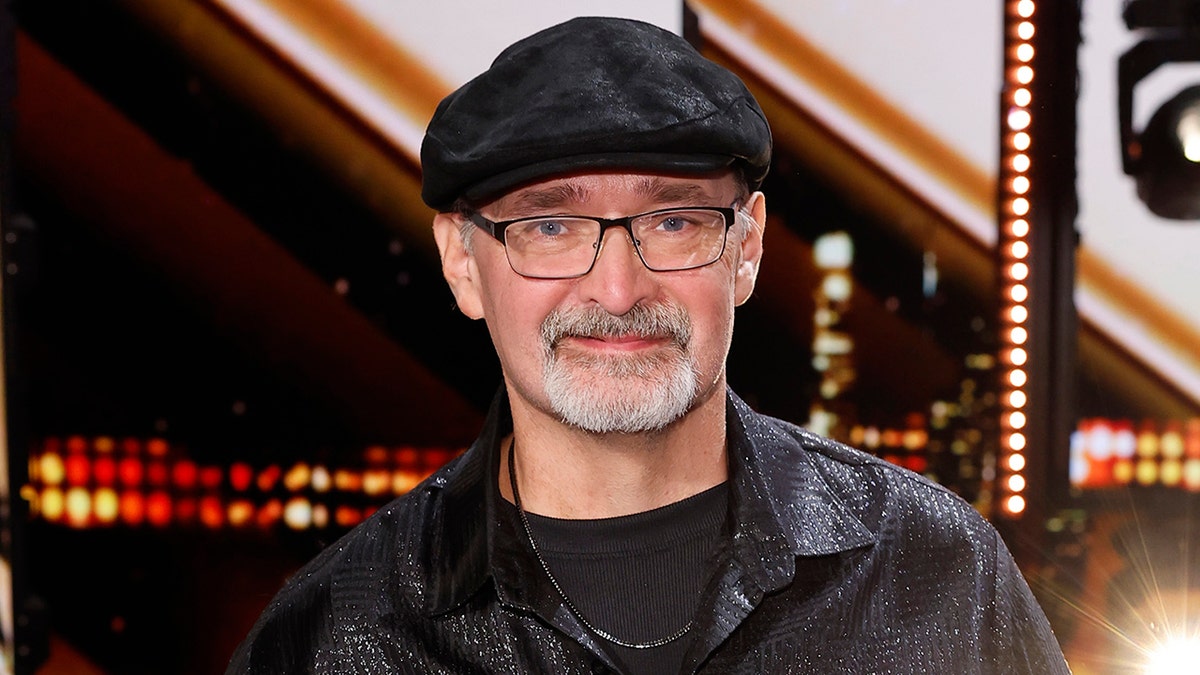
For over two decades, Richard Goodall walked the quiet halls of an Indiana elementary school, mop in hand, ensuring classrooms stayed clean and corridors remained spotless. A janitor by title, but in the corners of his heart, a rock star was waiting for the right stage, the right moment, and the right song.
That moment arrived in 2024 when Goodall, once an unassuming custodian, claimed victory in the 19th season of America’s Got Talent (AGT), transforming not just his life but redefining what it means to believe in one’s dreams.
On September 24th, in a grand finale watched by millions, Richard Goodall stood on the world’s most famous talent stage and did what no janitor before him had ever done: he won. His performance of a classic Journey rock anthem wasn’t just another cover. It was a statement. A testimony.
Backed by Journey’s legendary guitarist Neal Schon, Goodall’s voice, raw and impassioned, carried the echoes of every late night spent dreaming beyond the walls of his school’s gymnasium. Neal Schon, who had quietly followed Goodall’s AGT journey for six months, stepped forward after the performance, declaring his pride in being part of Goodall’s defining moment.
Goodall’s victory came with the crown jewel of the competition—a million-dollar prize—and perhaps more importantly, a permanent spot in the hearts of those inspired by underdogs. “Two minutes on this stage has changed my life forever,” Goodall said, his voice shaking with gratitude. “I really did it.”
It was a transformation that even Goodall hadn’t foreseen. For 23 years, his world was defined by routine: weekdays spent cleaning, weekends with family, and quiet moments of singing for himself or, occasionally, for the children at the school. In 2022, a spontaneous moment changed everything.
A TikTok video capturing Goodall singing Don’t Stop Believin’ to students spread like wildfire. His rich, soulful voice—untrained but undeniably stirring—caught the attention of none other than Steve Perry, former Journey frontman, who praised Goodall’s natural gift. That viral moment wasn’t fleeting; it planted a seed that would eventually flourish on the AGT stage.
When Goodall first appeared on AGT in May, he was still wearing the humility of a janitor but carrying the heart of a performer. Asked by Simon Cowell what he would sing, Goodall’s answer was immediate: Don’t Stop Believin’. “It’s not just a song. It’s my life motto,” he told the judges. The message was clear—through all the hardships, disappointments, and ordinary days, Goodall held tightly to belief. He wasn’t just singing for the audience; he was singing to remind himself that dreams don’t expire.
His performance shook the room. The judges and audience alike gave a standing ovation, and Heidi Klum, visibly moved, hit the Golden Buzzer, propelling Goodall straight to the live shows. From that moment, America paid attention.
The janitor from Indiana wasn’t just a novelty act. He was the embodiment of hope, proof that talent can reside in the most unexpected places, waiting for an opportunity to shine.
Throughout the season, Goodall’s authenticity became his greatest weapon. There was no façade, no performance gimmick—just a man with a story, a voice, and a dream. MC Terry Crews, hosting the night of the grand finale, summed it up perfectly: “Tonight, the dream of a lifetime came true on this stage for Richard Goodall.”
Goodall’s journey wasn’t just his own. It was a story for every worker overlooked, for every person whose talent remained hidden beneath the weight of daily responsibilities. He showed that sometimes the greatest voices aren’t born under stage lights but in school halls, echoing between chalkboards and backpacks.
In winning America’s Got Talent, Richard Goodall didn’t just take home a million dollars. He carried with him the hopes of anyone who has ever dared to believe that life can be more than the cards they’ve been dealt. His story is a reminder that belief, paired with a little courage, can transform the ordinary into the extraordinary.
And just like that, the janitor from Indiana stood center stage, no mop in sight, only a microphone in hand, and the roar of a world finally listening.


